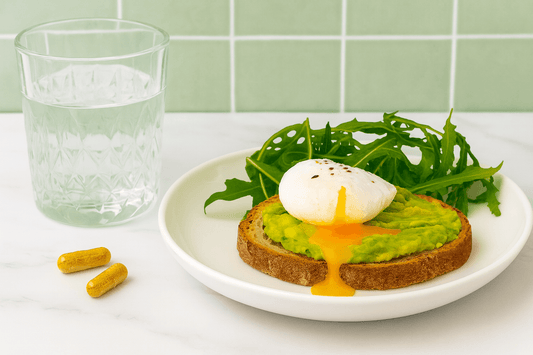
Fish oil: cure-all or bad for you?
- Quality: lots of oil supplements are rancid, making them actively bad for your health. They may also contain dangerous levels of industrial chemicals.
- Quantity: doses vary widely and may not be cost effective
- Source: is the product sustainable or is it depleting vital fish stocks on the other side of the globe?
Luckily there is a good way to feel confident about these issues - IFOS (International Fish Oil Standards) is an independent body (they don’t make or sell fish oil) and they certify supplements based on:
- Contents – does the amount of omega 3 match the label?
- Contaminants – does the product contain unsafe levels of mercury, PCBs, lead, cadmium and arsenic
- Stability – has it gone bad (been oxidised)?
This is why I use Bare Biology personally, and stock it at City Survivor. They were the first British brand to achieve IFOS certification
The oil comes from wild, sustainably caught Norwegian fisheries (certified by Friends of the Sea and the Marin trust).
And if you prefer to avoid fish altogether, there’s a great alternative: a quality EPA & DHA supplement derived from algae.
Why do we need to take fish oil or algae oil?
Nutritionally, a typical western diet doesn’t have enough EPA and DHA omega 3, and the industrialised production of seed oils (the typical rapeseed oil and vegetable oils sold for cooking) causes an excessive intake of omega 6.
What does this mean for health?
Omega 3 in pregnancy
During pregnancy, women’s DHA declines as it’s used for the baby’s growth - DHA is essential structurally for the brain and eyes. So, pregnant women need to increase their DHA by at least 200mg a day.
It’s essential to avoid the risk of mercury toxicity. Eat smaller fish like sardines; larger fish like swordfish accumulate more contaminants.
When supplementing, go for IFOS certified products.
Omega 3 for children
If we need more Omega 3, no doubt our children do too.
Omega 3 has been found to reduce ADHD symptoms alongside improvements to working memory.
Omega 3 for cardiovascular health
There’s strong evidence that fish oils reduce blood triglyceride levels – an important marker for cardiovascular health.
Fish oil can also help lower blood pressure - another cardiovascular health factor.
If you take prescription medications, check with your medical professional before using supplements - even something food source like fish oil may be unsuitable if you take blood thinners, for example.
Omega 3 for skin health
Omega 3 is important for the structure of your skin - dry skin can be related to diet!
Additionally, fish oil supplementation has been shown to improve the skin’s reaction to the sun - reducing reddening from sunlight and sensitivity to sunburn.
Inflammation
Omega 3 is anti-inflammatory. Our modern diet, as mentioned above, is very rich in omega 6 plant oils. The imbalance of omega 6: omega 3 is pro-inflammatory.
Inflammation is implicated in so many health conditions! Improving Omega 3 intake is key both for inflammatory health conditions like lupus or arthritis, and daily health struggles like menstrual cramps and eczema.
Omega 3 from food
Even if you avoid processed foods and vegetable oil at home, every time we buy convenience food, eat in restaurants, get a takeaway, snack on crisps, we’re getting a lot of high omega-6 vegetable oil.
Omega fatty acids for vegans
EPA & DHA can be synthesised in the body from alpha-linolenic acid (plant omega 3) but the amounts produced are tiny for most people - you’d really struggle to eat enough flaxseed (linseed).
Flax, hemp and chia seeds should still be included for a healthy diet, but take algae Omega 3 too.
Omega fatty acids in meat
If you’re a meat eater, be aware that anything that isn’t ‘pasture for life’ will be fed grain. Just like humans, the livestock end up with more omega 6 as a result which gets passed to you in the food chain!
Interestingly, good quality pasture grazed meat is a good source of Omega 3 fats.
How to take fish oil
Take your fish oil with a meal, it doesn’t matter what time of day.
You can get a higher dose with the Bare Biology Liquid. However, it’s more susceptible to oxidation than capsules. Keep it in the fridge, in its sealed dark glass bottle and box. Take it every day so you use it up quickly.
Capsules may be easier to remember - as the oil is protected in capsules, you can store them out of the fridge.
If you struggle with the large capsules, try these minis - you need to take more but they’re easier to swallow.
I hope this helps clear up the confusion around fish oil supplements.
If you need any help, get in touch!
Thanks for reading,
Daisy
Last updated 20th July 2023







